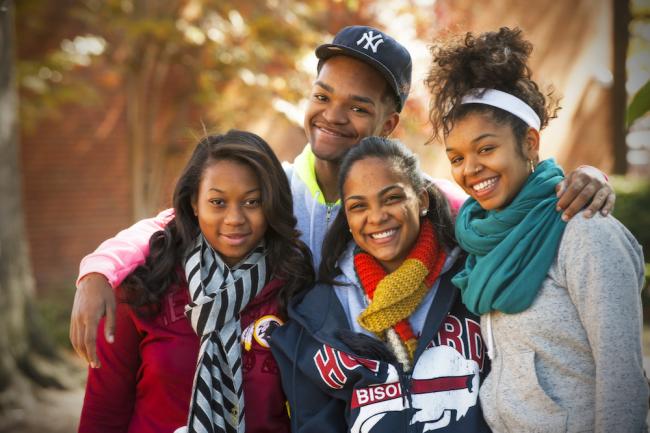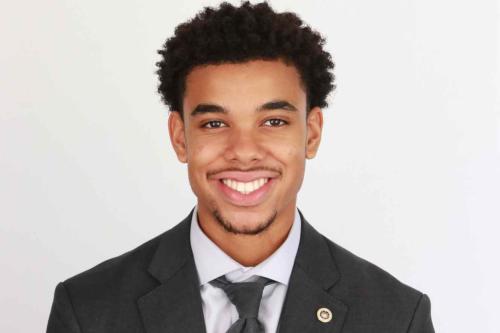Paris Adon, EdD, director of student services, just returned from a student’s dorm room. The student had been crying because he had fallen behind in his classes. Adon spent two hours talking with him.
It’s not an uncommon scene, Adon says. “There are several who were 4.0 students in high school, and they’re not now,” he points out, something that takes a lot of adjustment to accept. It can cause stress, anxiety, and even depression. Sometimes it’s caused by external factors: illness, family issues, relationship issues, or even misunderstanding with the professor. Other times it’s an undiagnosed disability. Or, it could be students having a difficult time adjusting to university pace.
Adon’s office handles disability support, military and veterans support, and nonclinical case management. Nonclinical case management is the area he’s working to build and hire. Students can reach out anytime they need assistance by calling 202-238-2420, from navigating the financial aid office to resolving overwhelming situations. The idea is to be an extra hand or voice for a student who might not understand how to handle a specific situation and could use someone more experienced to assist. Anything more clinical, he refers them to the HU Counseling Service
“Students are experiencing so much right now, and if you are and 18 or 19-year-old student coming to Howard, you might not know how to navigate the entire campus,” Adon explains.
His office will help students talk to various administrative offices to resolve billing inquiries and the like; they’ll also reach out to professors on behalf of students to discuss any concerning matters. They’ll also connect students experiencing similar situations to each other, walk them through unfamiliar territory, and even provide a shoulder to cry on. Adon says students always receive a follow-up call to ensure students are doing better or have received the help they needed.
In addition to providing individual support, the office offers group discussions on a number of topics (including relationships, bereavement, family, and so forth), lunch activities, and mindfulness activities.





